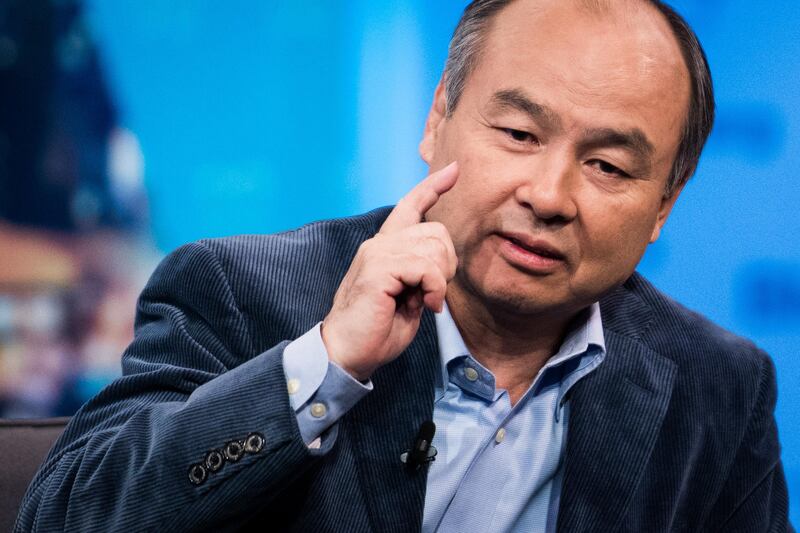SoftBank Group reported quarterly profit that topped analysts' estimates, as its US unit Sprint faces an uncertain future after talks to merge the carrier with T-Mobile US collapsed.
Operating profit was 396 billion yen (Dh12.7bn) in the period ended September, the Tokyo-based company said in a statement Monday. That’s more than the 322bn yen average of analysts’ projections compiled by Bloomberg. Sales came in at 2.23 trillion yen, matching predictions.
SoftBank's founder Masayoshi Son has relied on a steady flow of cash from Japanese wireless and telecom operations to fund new endeavours, while Sprint has struggled to return to profit and stem subscriber losses. After merger talks with T-Mobile fell apart over control, Son needs to find a new way to
secure Sprint's long-term future. The billionaire is also in the process creating the $100bn SoftBank Vision Fund with the Saudis, Abu Dhabi investor Mubadala Investment Company and other backers to speed up investments in technology start-ups abroad. Son addressed questions about Sprint's future and the Vision Fund at a briefing on Monday.
_________________
Read more:
[ SoftBank Vision Fund evaluates "significant" Saudi Electricity stake acquisition ]
[ Saudi Arabia unveils $500bn investment zone spanning three countries ]
_________________
“The board decided that we could not agree to a merger of Sprint and T-Mobile that would result in the loss of control,” Son said at the Tokyo Stock Exchange. Sprint’s finances are improving, so therefore “it will be able to secure funding on its own,” he said.
SoftBank’s shares, which are up 28 per cent this year, fell 2.6 per cent to close at 9,945 yen on Monday. The Japanese wireless operator has a market value of about 11tn yen, while its public shareholdings are worth about 17tn yen. Son has for years maintained that his company is undervalued, urging investors to see SoftBank as a “goose with more golden eggs in its belly.”
SoftBank’s talks to merge Sprint with T-Mobile ended when Son had second thoughts about the sale after a meeting with his board a week earlier, people familiar with the matter have said. Investors are poised to ask him tough questions about Sprint’s strategy for going forward alone in the US, and whether more money will be needed.
Under SoftBank’s control, Sprint has succeeded in halting a customer exodus, but progress came at a cost and the company hasn’t had a profitable year in a decade. Holding on to subscribers would also require investments into network improvements that the fourth-largest US carrier may struggle to pay for. About half of Sprint’s $38bn in debt and obligations is coming due over the next four years and the Overland Park, Kansas-based company is also facing potentially costly investments into next-generation wireless technology.
"Investors are focusing on what Son has to say about the Sprint problem and Vision Fund investments," Masahiko Ishino, an analyst at Tokai Tokyo Securities, said prior to the earnings release. "Son has also said the Vision Fund won't end at $100bn, promising a second and third investment vehicle. More
on that would be of great interest."






